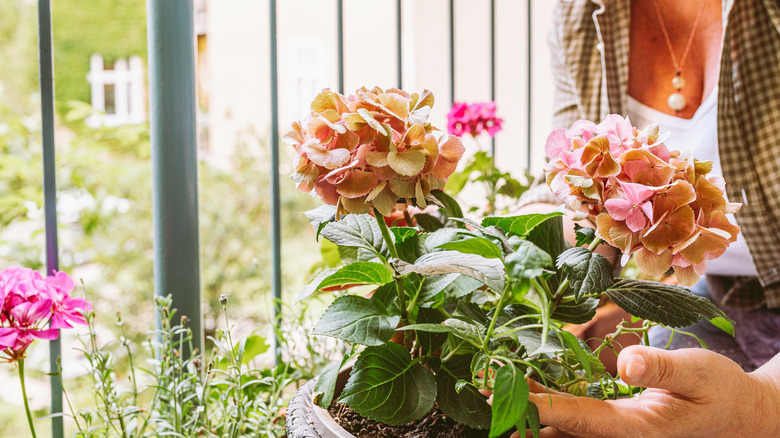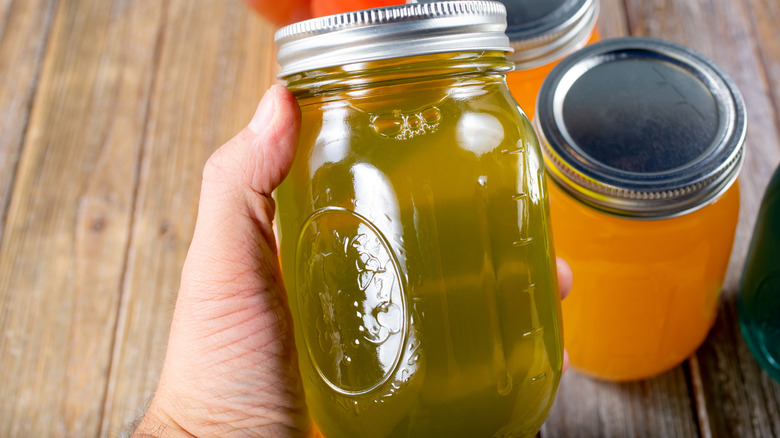Why Pickle Juice Is The Unsung Hero For Lush And Thriving Hydrangeas
Pickles are a great snack to have around the house, but when you finish off a jar, you're left with a bunch of juice. Unless you're making a lot of cocktails or use it as part of a workout regime, you likely just end up pouring the liquid down the sink. For those who own a garden, though, there may be another way to reuse the pickle juice that would otherwise go to waste.
It may sound strange but pickle juice can actually help your garden, especially when it comes to flowers like hydrangeas. It's not the only way to benefit a hydrangea, as alum powder is another secret ingredient to keep your hydrangeas flourishing. However, it is something many people have around their home and don't know what to do with, making pickle juice an easily accessible option.
Unfortunately, even with tips and tricks to keep hydrangeas happy, they aren't easy plants to grow. There are plenty of posts online about how these are beginner-friendly flowers, but if you don't have the perfect environment for them, they often turn into nothing more than a bundle of sticks. For those who have a long history of struggling with hydrangeas (and not even pickle juice is helping), there is a handy little plant known as viburnum which is a hydrangea look-alike and is just as gorgeous and easier to take care of.
How pickle juice helps your hydrangeas
Pickle juice has acetic acid in it, which helps hydrangeas bloom and grow. Most hydrangeas love more acidic soil, and pickle juice is one way to increase the acidity by small amounts. Additionally, changing the pH of the earth can change the colors of the flowers. In this case, adding pickle juice to the soil can make hydrangeas have a blue tint.
While acetic acid is beneficial to your hydrangeas, the vinegar in pickle juice as a whole is often somewhat dangerous for your plants. If used without dilution, the vinegar may kill your hydrangeas. To keep your plants as safe as possible, you need to dilute the juice. The most accepted ratio is 1-20 pickle juice to water. You'll want to use this mixture only during the growing season, applying it roughly every two weeks.
To be extra cautious, it's a good idea to pour the mixture directly into the soil. If you place the mixture on your leaves or flowers, the vinegar and salt in pickle juice could harm them. However, because the vinegar is harmful to plants, it does provide a secondary benefit to your hydrangeas, which is that it acts as a mild weed killer and is also one of the unexpected uses for vinegar around your lawn and garden.

